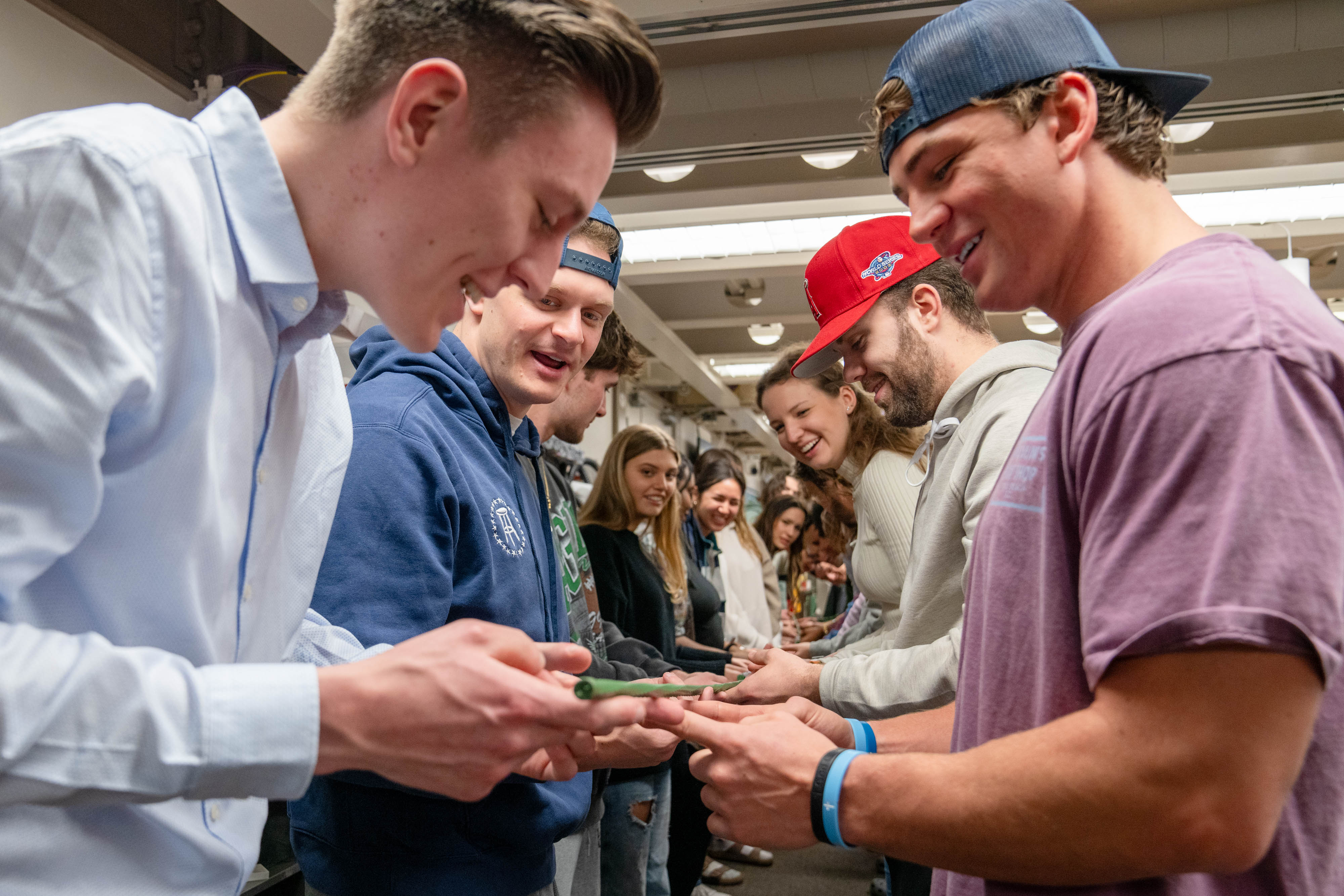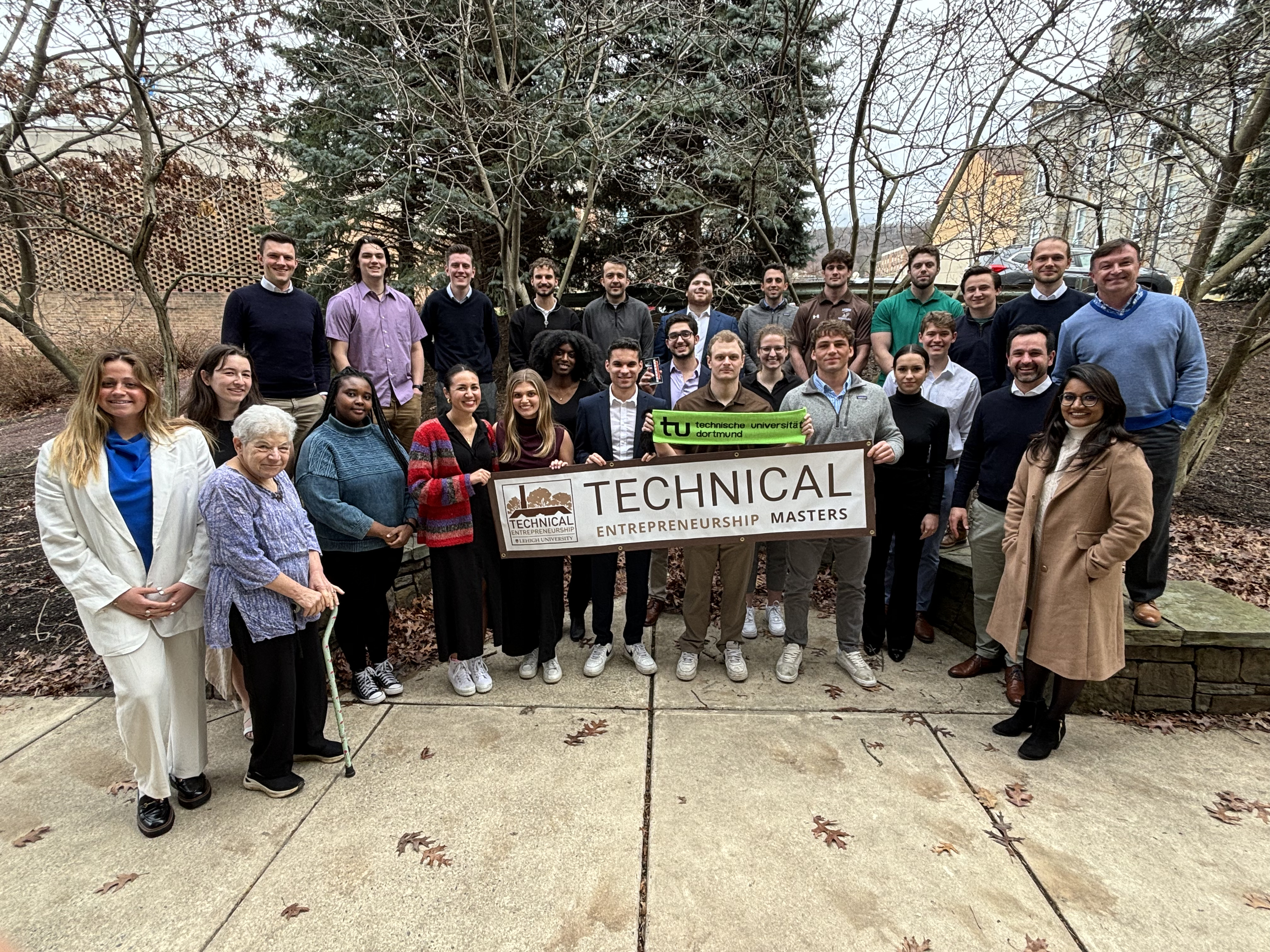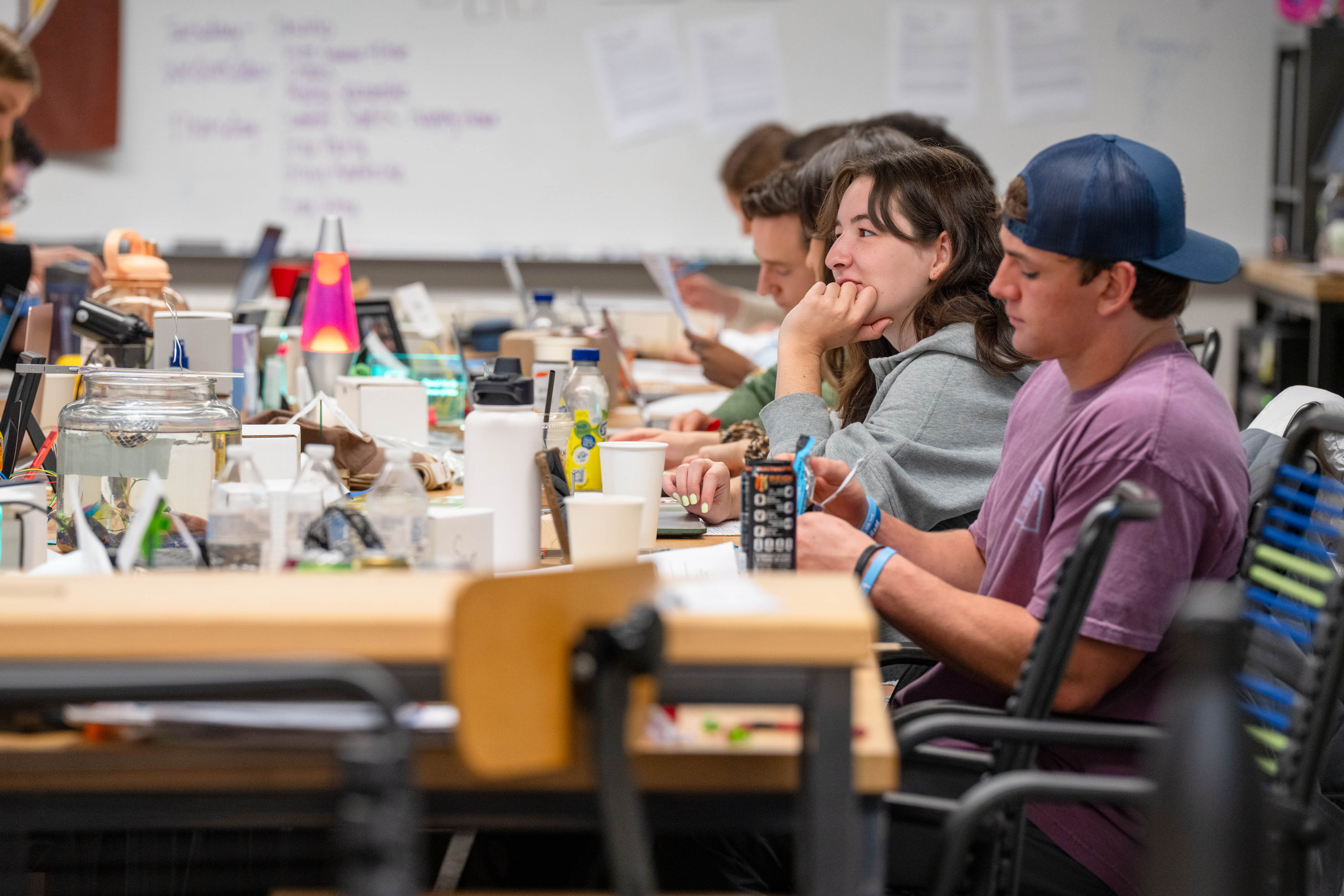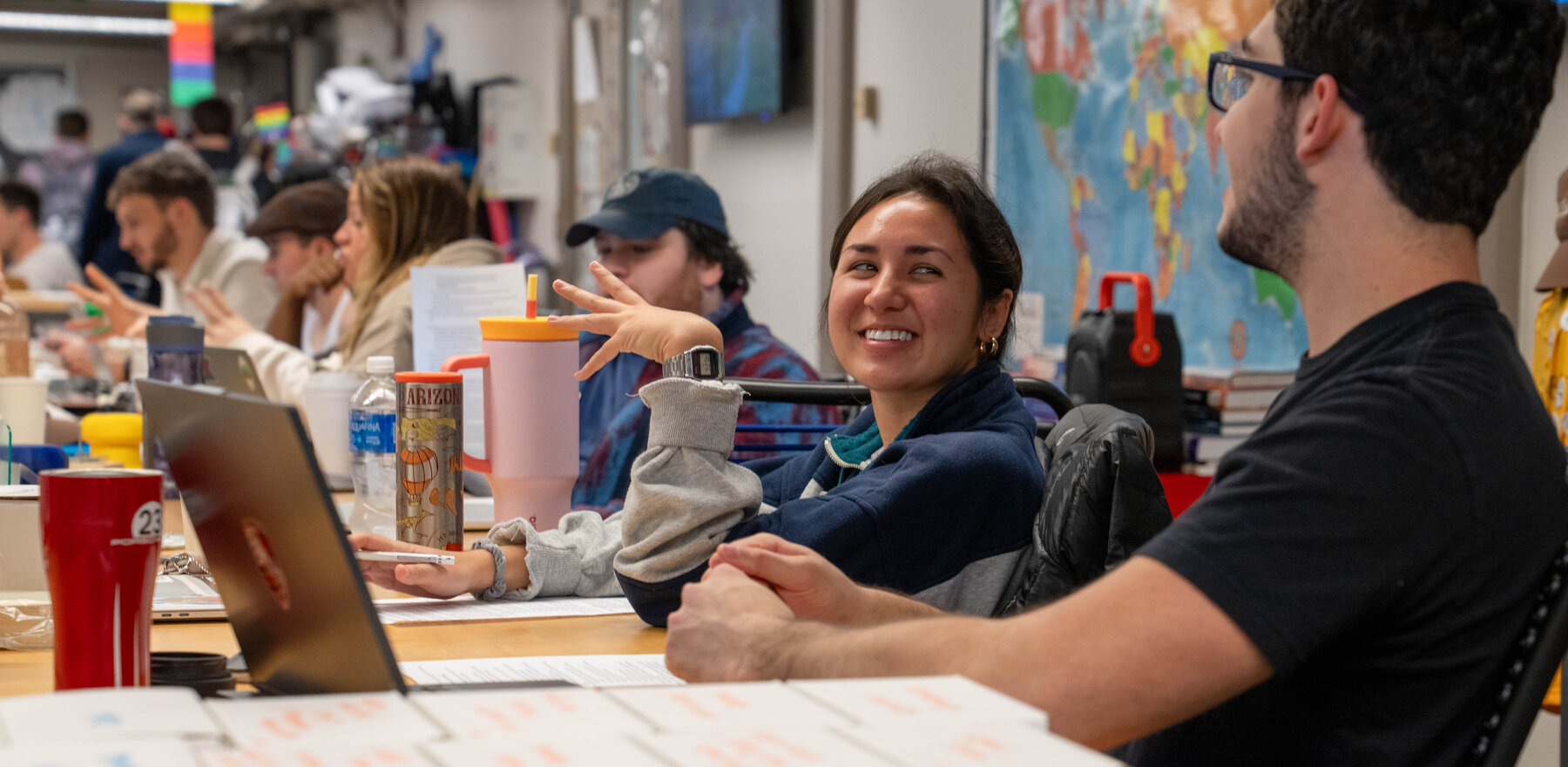TE Week 2024, a week-long academic immersion for graduate students studying entrepreneurship, marked another chapter in the long-standing partnership between Lehigh and TU Dortmund
TE Week is back at Lehigh University, and this time, it has an international twist.
This year, Lehigh graduate students pursuing an M.Eng. or Graduate Certificate in Technical Entrepreneurship (TE) were joined in TE week by a select number of students from Technische Universität (TU) Dortmund, a technical university in the Ruhr region of Germany.
Lehigh has enjoyed a long-standing international partnership with TU Dortmund, but this marks the first time Lehigh and Dortmund students have participated together in TE Week, a week-long academic immersion for graduate students studying entrepreneurship.

“Much of the ongoing collaboration between Lehigh and TU Dortmund has been focused on fostering innovation and entrepreneurship, so TE Week was an absolutely perfect fit,” said Cheryl Matherly, Vice President and Vice Provost for International Affairs at OIA. “We have been delighted to host these students from Dortmund and provide them an opportunity for hands-on learning experiences alongside Lehigh graduate students.”
The participating Dortmund students were competitively selected from the university’s DLab, a digital initiative that offers an interdisciplinary certificate in Digital Technology Management.
“I am delighted that we were able to initiate this new program between TU Dortmund University’s Dlab and Lehigh University’s Technical Entrepreneurship,” said Tessa Flatten, TU Dortmund’s Vice President of International Affairs, who visited Lehigh and met individually with each student team to discuss their projects and receive feedback.
“Students from both universities analyze patents and subsequently develop business models while taking into account their different cultural and professional perspectives,” Flatten said. “This is a perfect preparation for their future jobs in international and intercultural environments.”
Developing Commercialization Plans

Students from both institutions were placed into interdisciplinary teams charged with identifying an invention available to license either through the Lehigh University Office of Technology Transfer or NASA Technology Transfer Program, said Michael Lehman, Director, M.Eng. in Technical Entrepreneurship at Lehigh.
Once they chose an invention, they were tasked with developing a robust commercialization plan for both product and venture, providing the teams with a unique opportunity to apply the knowledge and skills they have acquired during their graduate studies, Lehman said.
“It’s been intense!” said Lena Naber, a TU Dortmund graduate student pursuing her master’s degree in economics. Her team created the fictional startup Agnify, which produces a battery made of concrete that converts heat into energy, which could help residents in rural and developing areas with limited to no access to power.
“It’s a lot of work in just one week, but it’s been really fun,” Naber said. “I’ve never had the chance to study abroad, and I was hoping to get an international perspective on entrepreneurship topics. I’ve definitely received that here.”
Impressive Student Presentations

The teams can develop their commercialization plan in the context of one of three assigned scenarios: using the technology to create a start-up from scratch, leveraging the invention to help an existing three-year-old venture scale, or integrating the tech through as an intrapreneur at a large corporation.
“I work with a lot of actual founders who are in the stage where they have actually received funding, and even they don’t have it all figured out as well as you guys have it in your presentations,” sailed Willy Das, Research Scientist and Curriculum Innovation Manager at Lehigh@NasdaqCenter, said during TE Week student presentations on March 7. “The fact that you’ve done all of this in four days is really amazing.”
Another hypothetical project developed by one of the student teams was OxySport, portable oxygen concentrators and filters that provide on-the-go support to athletes, enhancing endurance and recovery in sports performance.
“Personally, I’m a skier, and I have first-hand experience skiing at high altitudes and having difficulty breathing, so I know there will be a strong demand for this product,” said Cassandra Farrell, a member of the OxySport team and designated CEO of the startup company they created, Osynth.
Continuning a Long-Standing Partnership
Flatten added that Lehigh and Dortmund students working together in TE Week 2024 is a step towards translational research. “Thanks to the new program, students will gain a deeper understanding of universities’ capacities to support them in their endeavor to found spinoffs,” she said.
Lehigh and TU Dortmund have enjoyed an active and highly successful institutional partnership for the last 24 years. A delegation from Dortmund visited the Lehigh campus in October for a symposium that highlighted practices at both institutions to expand the entrepreneurship ecosystems in their respective regions.
The two universities gathered for intensive roundtable discussions after the symposium to identify shared challenges in both their communities, establishing short- and long-term goals for continued collaboration over the upcoming months. They have been meeting virtually on a regular basis since then to bring those goals to fruition.
